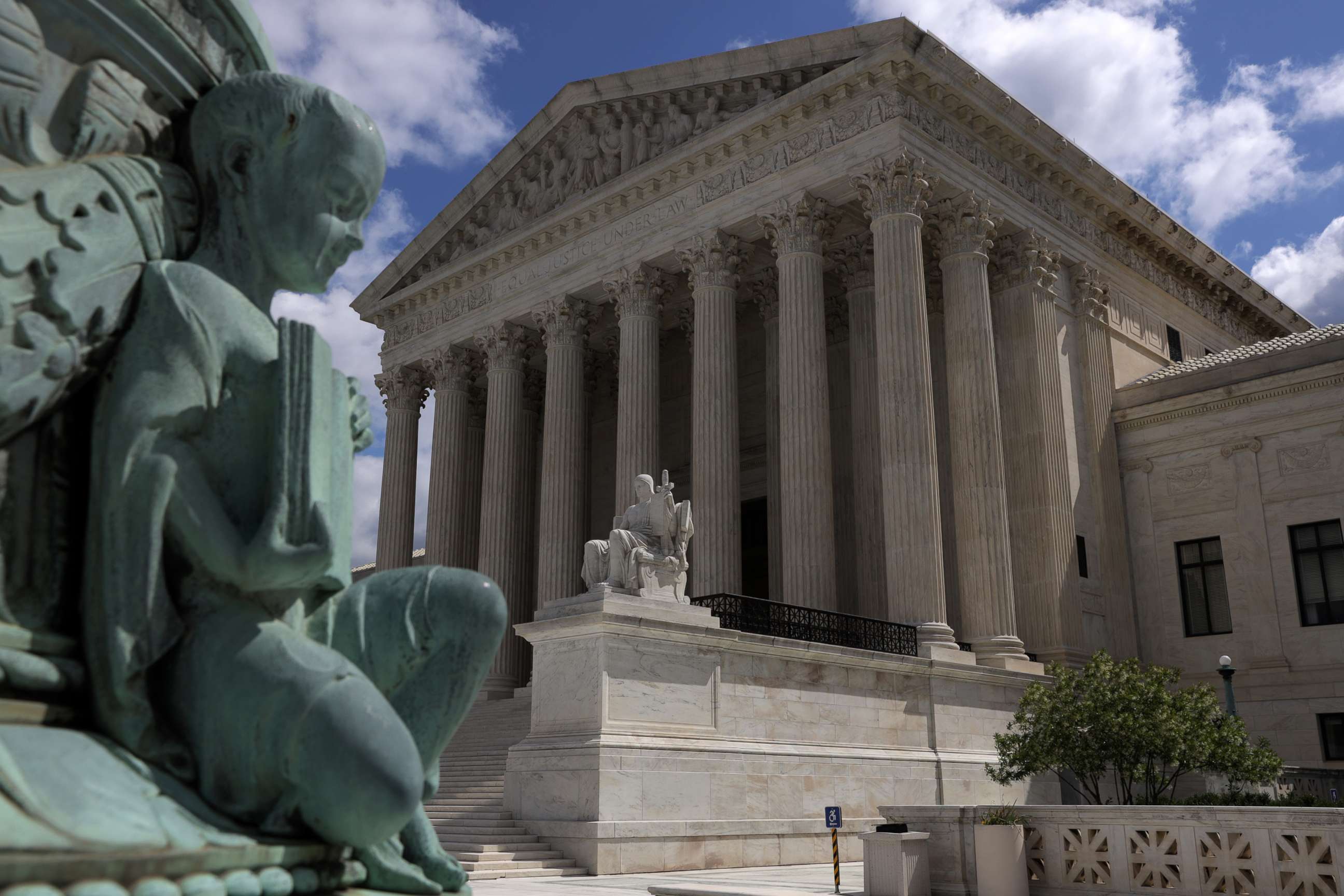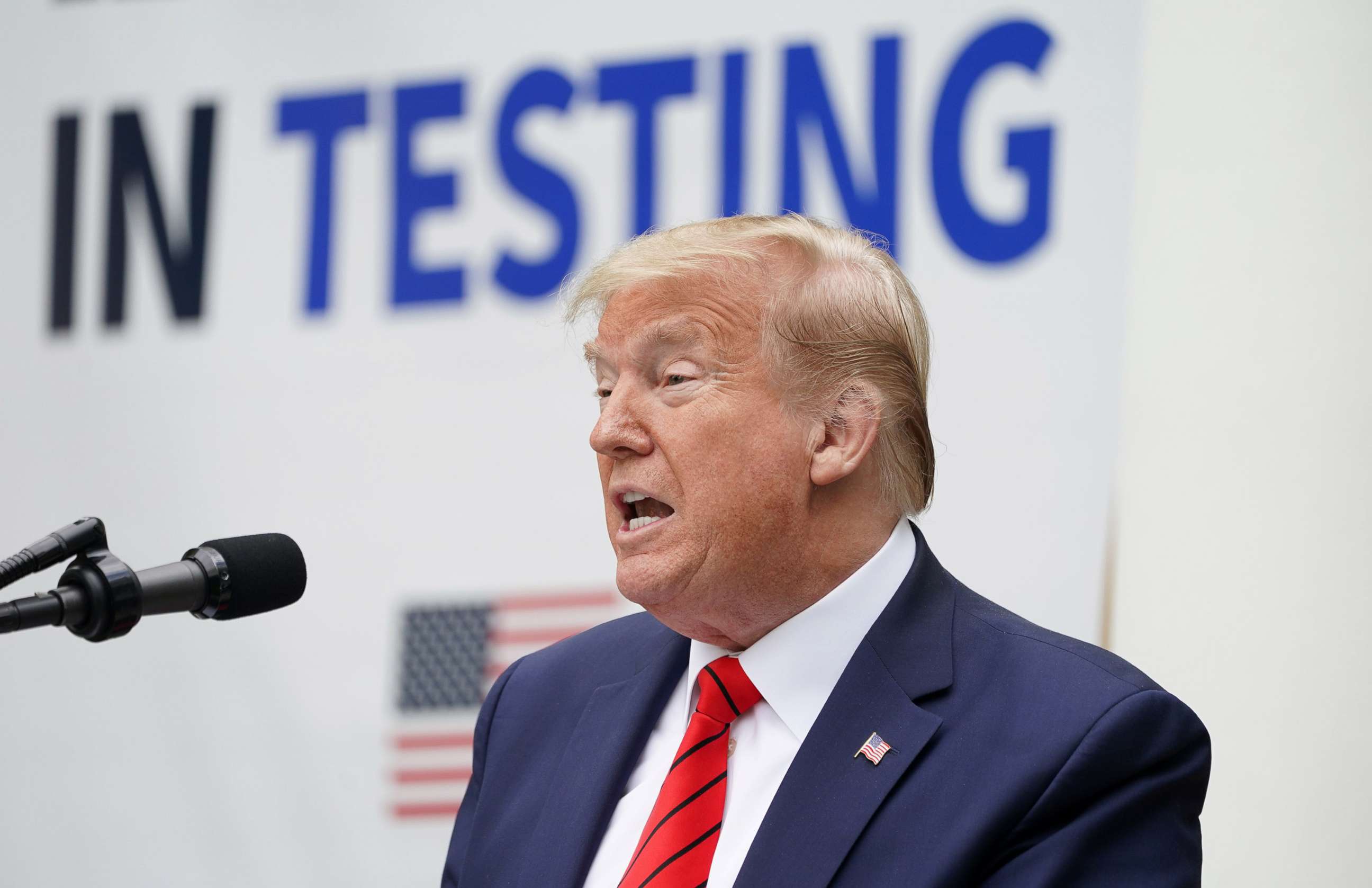Supreme Court justices raise concern about 'harassment' by subpoenas for Trump taxes, financial records
The justices seemed to reject Trump claim of "absolute immunity" from subpoenas.
A divided Supreme Court on Tuesday wrestled with the legality of sweeping subpoenas for President Donald Trump's personal financial records, raising concerns about the potential for "harassment" of a president by politically motivated investigators.
At the same time, the justices seemed to reject a claim by the president's attorneys that he enjoys "absolute immunity" from any investigation into his private business while he's still in office.
"The question then boils down to how can we both protect the House's interest in obtaining information it needs to legislate, but also protect the presidency?" Justice Brett Kavanaugh said, framing the debate. "How can the court balance those interests?"
For more than three hours of oral arguments by teleconference, the justices did not appear to find consensus.
Trump's personal attorneys were challenging subpoenas from three Democratic-led House committees and a New York prosecutor seeking a broad range of financial records held by the president's private banks and accounting firm.
The committees are seeking the records to help draft government ethics and anti-money laundering laws; the Manhattan District Attorney has sought them as part of a probe into possible state financial crimes.
Chief Justice John Roberts worried openly that the House committees are claiming a "limitless" ability to request private documents of a sitting president.
Justice Stephen Breyer noted the subpoenas were seeking "a lot of information and some of it's pretty vague," adding that "there may be burdens" imposed on the president by forcing his banks and accounting firm to produce them.
"One (subpoena) could be manageable, but 100 (subpoenas) could be impossible," said Justice Clarence Thomas of the potential aggregate impact of subpoenas on a president.
Justices Ruth Bader Ginsburg and Sonia Sotomayor defended the ability of lawmakers to issue subpoenas for broad legislative purposes.
"One must investigate before drafting legislation," Ginsburg said.

As debate shifted focus to a grand jury subpoena for Trump records issued by Manhattan District Attorney Cyrus Vance, the justices seemed to suggest that Trump and future presidents could, in fact, be subject to criminal process within some limitations.
The chief justice invoked the court's unanimous 1997 decision in Clinton v. Jones which required then-President Bill Clinton to sit for a videotaped deposition in a civil suit brought by former Arkansas state employee, Paula Jones.
"We weren't persuaded that discovery in that case could not proceed," Roberts said to Trump attorney Jay Sekulow. "I don't understand your theory."
Justice Neil Gorsuch openly wondered why Sekulow was claiming subpoenas to a third-party custodian of the president's personal records would be "more burdensome" than what the court allowed in the Jones case, when Clinton had to be deposed.
"You can't just look at one subpoena, but 2,300 (district attorneys) issuing them," Sekulow argued, warning the court against what he called a potential wave of investigations into presidents by local prosecutors. "He's the president of the United States. He's a branch of government."
But even Trump's Solicitor General Noel Francisco argued before the court that there are circumstances in which a president should not be immune from subpoenas for information about his conduct as a private citizen.
A prosecutor "has got to show that the information he's seeking is critical to making a charging decision," Francisco said, "that he can't get it anywhere else and the information he does have is insufficient."
The justices spent more than 90 minutes debating what that standard should be and who, in cases of state investigations like New York's, bears the burden of proving it.
Carey Dunne, attorney representing the New York district attorney, insisted the responsibility is on the president to contest a lawfully-issued subpoena in court by explaining how it infringes on his ability to do his job as president.
Trump makes no such claim in the case of these subpoenas.
"When a president acts as a private individual he or she has responsibilities like any other citizen," Dunne said. "This court has held they are not above having to provide evidence."
If a president can show that his job is harmed by having to respond to a subpoena, Dunne said a prosecutor would "have to show objective basis for the investigation and reasonable probability information could be helpful."
"Requiring a state prosecutor to get permission first for any request would undermine this court's prior rulings," he said.
Sekulow insisted that the New York prosecutor's subpoenas -- and the House committee subpoenas -- were politically motivated and overly broad.
"What's really happening here could not be clearer," Sekulow said. "The presidency is being harassed and undermined."

Every lower federal court has ruled that the president's banks and accounting firm must comply with the House and grand jury subpoenas for his documents. If the Supreme Court agrees, Trump would likely have to turn over at least some financial records to investigators before Election Day.
"More importantly, what it would say is that this president is not different from any other president, that all presidents have to comply with the rule of law and with court proceedings," said University of Pennsylvania law professor Claire Finkelstein, director of the school's Center for Ethics and Rule of Law.
The court is expected to hand down its decision in the case by the end of June.




